![paris]()
REPEATER BOOKS 2019
Edited by Andrew Gallix
Work by Max Porter, Chris Power, Owen Booth, Rosalind Jana, Jennifer Hodgson, S.J. Fowler, Greg Gerke, Jonathan Gibbs, Emily S. Cooper, Heidi James, Nathan Dragon, Wendy Erskine, Ashton Politanoff, Kathryn Scanlan, Utahna Faith, Tristan Foster, Sophie Mackintosh, Tomoé Hill, Yelena Moskovich, Donari Braxton, Susanna Crossman, Christiana Spens, Gavin James Bower, Joanna Walsh, Eley Williams, Julian Hanna, Richard Skinner, Richard Kovitch, David Collard, Jeremy Allen, Elsa Court, Niven Govinden, Adam Scovell, C.D. Rose, Laura Waddell, Nicholas Royle, Gerard Evans, Thom Cuell, Stewart Home, Anna Aslanyan, Natalie Ferris, Owen Hatherley, Tom Bradley, Andrew Gallix, Will Ashon, John Holten, Gerry Feehily, Dylan Trigg, Fernando Sdrigotti, Stuart Walton, Will Wiles, Tom McCarthy, Andrew Robert Hodgson, Lee Rourke, Will Self, Jo Mortimer, Cal Revely-Calder, Adam Roberts, Lauren Elkin, Susan Tomaselli, Steve Finbow, Cody Delistraity, H.P. Tinker, Russell Persson, David Hayden, Daniella Cascella, Adrian Grafe, Alex Pheby, Richard Marshall, Toby Litt, Andrew Hussey, Nicholas Rombes, Susana Medina, Isabel Waidner, Nicholas Blincoe, Evan Lavender-Smith, Jeffrey Zuckerman, Sam Jordison, Paul Ewen, Brian Dillon, Robert McLiam Wilson, Rob Doyle.
WHEN I READ THIS BOOK, MY THOUGHTS WILL APPEAR AS THE COMMENT STREAM BELOW…



 LETTERS FROM ELODIE Laura Mauro
LETTERS FROM ELODIE Laura Mauro
 BORN STILLBORN
BORN STILLBORN THE GLISTENING WORLD
THE GLISTENING WORLD GLASSES
GLASSES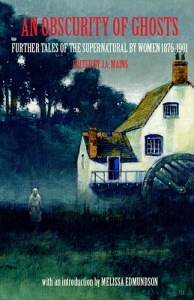
 “Another person saw her go through the hedge, and he observed, that he could see the hedge through the figure as she glided into the field.”
“Another person saw her go through the hedge, and he observed, that he could see the hedge through the figure as she glided into the field.”





 THE ARRAIGNMENT
THE ARRAIGNMENT
 BIENVENIDOS A TEJAS
BIENVENIDOS A TEJAS




 IV. HERETICS OF THE BLACK SUN
IV. HERETICS OF THE BLACK SUN












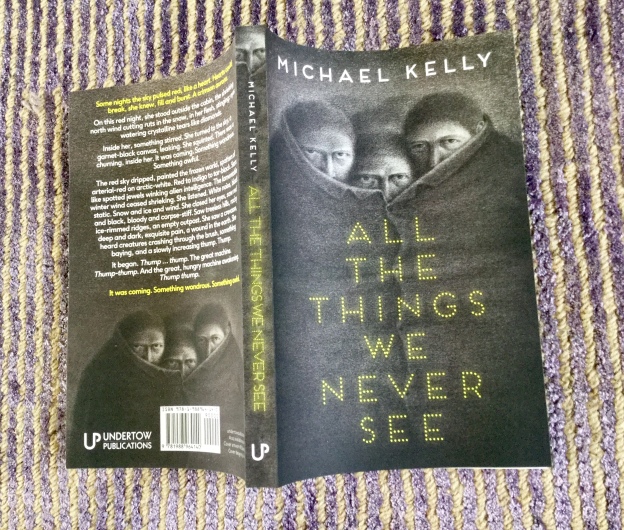

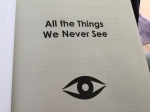
 ALL THE THINGS WE NEVER SEE
ALL THE THINGS WE NEVER SEE [image by Tony Lovell]
[image by Tony Lovell] 


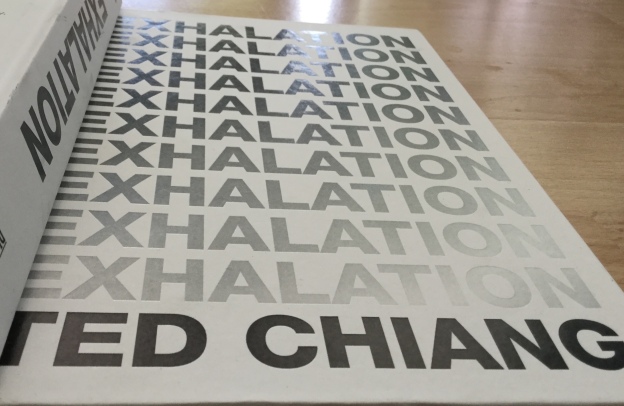
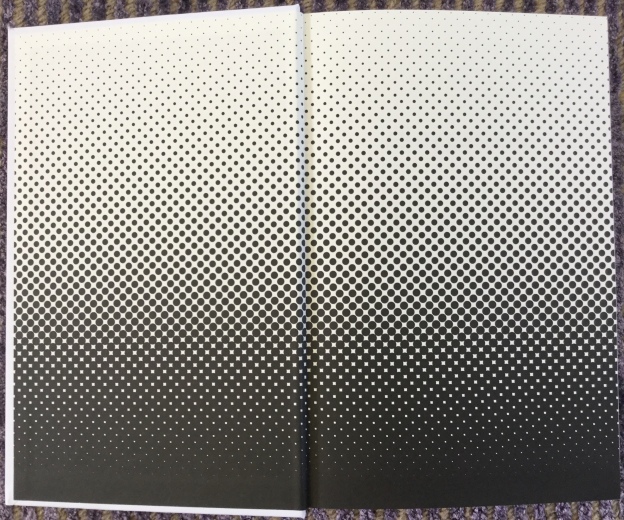

 Merleau-Ponty sounding like a tourist sight
Merleau-Ponty sounding like a tourist sight 





 Part of the photograph I used for my Gestalt Real-Time Review of the book called EVERYDAY by the author of the next story (as yet unread) that follows the following Hodgson story…
Part of the photograph I used for my Gestalt Real-Time Review of the book called EVERYDAY by the author of the next story (as yet unread) that follows the following Hodgson story…




 HANS-MY-HEDGEHOG by Jacob and Wilhelm Grimm
HANS-MY-HEDGEHOG by Jacob and Wilhelm Grimm And that this whole book is dedicated in clear print “For Hans-My-Hedgehog.” A book born with promises as well as quills, till it all comes eventually together as a perfect gestalt. And this story teeming with interpretations, me of it, it of me, a story unknown by me till today.
And that this whole book is dedicated in clear print “For Hans-My-Hedgehog.” A book born with promises as well as quills, till it all comes eventually together as a perfect gestalt. And this story teeming with interpretations, me of it, it of me, a story unknown by me till today.

 FEATHERTOP: A MORALIZED LEGEND by Nathaniel Hawthorne
FEATHERTOP: A MORALIZED LEGEND by Nathaniel Hawthorne From ‘hop’ to ‘hope’, we now reach a work from 1870 in this mighty massive book…
From ‘hop’ to ‘hope’, we now reach a work from 1870 in this mighty massive book… THE REMARKABLE ROCKET by Oscar Wilde
THE REMARKABLE ROCKET by Oscar Wilde 
 The magic of the moment expunging the misery of real-time. A gestalt to be worked at. As I do. But did I read this, or did I dream it, or did I actually live it for real till the very edge of its black hole? The fireflies and coyotes et al. The characters of the two drug-pushers, and their interface of motives, are compellingly told. Part of me understood it, part of me didn’t. I wonder which part wrote this review! At each. pause point of the pendulum of mixes. The smells come first (better exhale, instead). Déjà vu, if at all, always too late. And not even one dragon sneaked in.
The magic of the moment expunging the misery of real-time. A gestalt to be worked at. As I do. But did I read this, or did I dream it, or did I actually live it for real till the very edge of its black hole? The fireflies and coyotes et al. The characters of the two drug-pushers, and their interface of motives, are compellingly told. Part of me understood it, part of me didn’t. I wonder which part wrote this review! At each. pause point of the pendulum of mixes. The smells come first (better exhale, instead). Déjà vu, if at all, always too late. And not even one dragon sneaked in.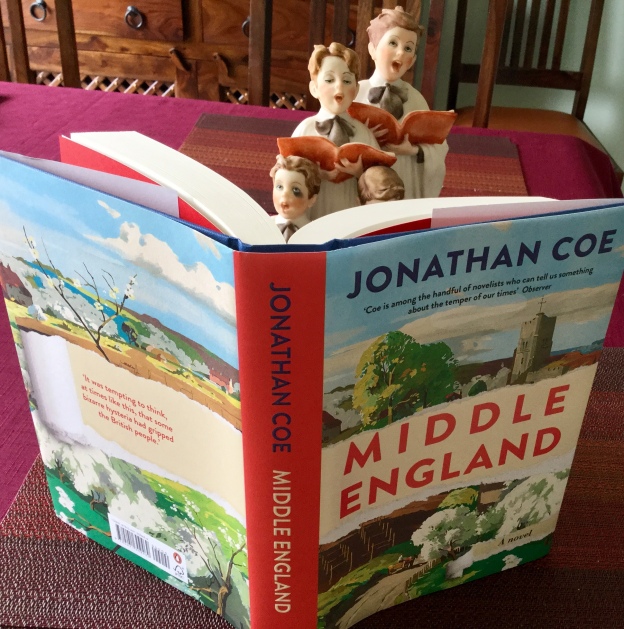


 Part of me does, admittedly. While the other part of me hankers for an endemic breaking of rules, here emblemised by the words to Blake’s Jerusalem. And Benjamin is interviewed by a young lady about his novel, an eye-opener for him, I feel. And I reach the bit where he was with Boris at university, but didn’t know him, as Boris was the type not to mix with grammar school boys (like me.) Today, meanwhile, Boris goes to Stormont, and Steve Bannon — Boris’s, Nigel’s and Donald’s soulmate spur — is interviewed on radio, whereby he says we have seen nothing yet regarding Brexit: we are about to enter what he describes as the RED ZONE.
Part of me does, admittedly. While the other part of me hankers for an endemic breaking of rules, here emblemised by the words to Blake’s Jerusalem. And Benjamin is interviewed by a young lady about his novel, an eye-opener for him, I feel. And I reach the bit where he was with Boris at university, but didn’t know him, as Boris was the type not to mix with grammar school boys (like me.) Today, meanwhile, Boris goes to Stormont, and Steve Bannon — Boris’s, Nigel’s and Donald’s soulmate spur — is interviewed on radio, whereby he says we have seen nothing yet regarding Brexit: we are about to enter what he describes as the RED ZONE.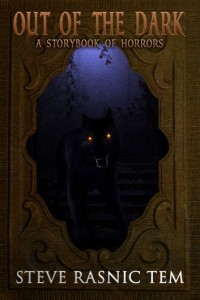 .
. Even a man who is pure in heart
Even a man who is pure in heart PHOTOGRAPH
PHOTOGRAPH A Hundred Wicked Little Witches
A Hundred Wicked Little Witches

My short review of this experience here: https://dflewisreviews.wordpress.com/2019/06/14/mirgas-mahler-is-miracular/
“…a neat, endless now of monuments and epitaphs,…”
That sic-nificant typo, intentional or not? It seems highly important to me, as I start to follow Damien here, having myself visited a rain-strewn city last week (Birmingham) from where I returned yesterday to find this book for the first time, a ‘holiday’ when I visited a genuine coffin works, two cathedrals and Key Hill Cemetery. My photos of the latter below. (Highgate, a similar cemetery, is mentioned in the first chapter of Graves.)
First mention so far of Adalbert Eder. Maybe he will not be mentioned again?
—- from GRAVES by Quentin S. Crisp
A dead monument to once ancient hope cloistered by ravelled bones and ruined walls.
GRAVES arrived in the same postal package as SONG FOR THE UNRAVELING OF THE WORLD by Brian Evenson.
“That the writing course photographs shared a film with the cemetery photographs…”
Can retrospection ever strengthen sufficiently to become retrocausality? This, meanwhile, is becoming a slippery brown book that, when younger, I would have lived inside of or it would have lived in my bag for many years when travelling, something with which to make friends, a relationship to look at too deeply would spoil it by becoming a reader glued to each word, as we learn of a younger Damien’s first meeting with Sadie as part of a Platonic triangle (with another man), during a writing course. A book to be sent away to be developed with anticipation like an old-fashioned film of photographs, a reading process of pent delay, not that slickly immediate digital photo-story that I showed above of Key Hill. This, you know, is not a meditative roman à clef, as I suspected it would be from this writer (one of my favourite living writers), but a real novel, with believable and potentially empathisable characters. A page-turning quality – despite (or paradoxically because of?) its textured ohm-resistance of thoughtful prose.
“Never believe that the small things don’t matter.”
The water table, if not its shed, must have risen last week because of the continuous rain we experienced in Key Hill cemetery and elsewhere thereabouts. Meanwhile, this chapter is an exquisitely attritional omniscience of the thoughts of two people ‘getting to know each other’, Sadie staying with Damien for the first time. If I told you all about these thoughts and the place where Damien lives, it would spoil your natural development of them in your mind, as if in a far-off chemist shop or photo factory. Suffice to say, it builds and builds with gratuitousness, with the paradoxes involving death and life, tentative self-sensitivity, the nature of handwriting, spiritual gaia, our ‘globe of stone and water’ where we share such things, a passivity of ambiance that is more than passivity, the “lassitude of indecision”, and “fumblingness.” And more.
Pages 42 – 56
“, in a weed-grown cemetery, standing in front of a backward-slanting headstone. Rain fell, at a different slant. It darkened the stone in spots that multiplied and ran,…”
Up or down slope or slant, this section is reaching toward that roman à clef about personal attitudes on pivots of death or/in life (including life as time-sapping paid work), living putrescence or dead meat, uneaseful lassitude or creative meditation, domestic violence and/or Alan Bennett, Sylvia Plath or Mary Shelley, Englishness or cosmopolitanism — a ‘reaching toward’ that I thought this book had somewhat eschewed via the earlier l’art-pour-l’art of Damien’s novelistic relationship with Sadie. Think McEwan re the latter? Aesthetics or mundanity perhaps being another pivot. Eschatology without scatology, so far. Unless you include putrescence in the latter?
Still, despite a possible didacticism, this section is fascinating, even inspiring, for example about shrunken heads, multi-storey car parks et al.
Of course, my own only published novel deals with that state of being or becoming from babyhood slowed down by a sort of Zeno’s Paradox, then extending into adulthood. But that, of course, is pretentious to mention here, perhaps. But I have a sense of preternatural synchronicity as ever in my hawling, and any reviewer cannot ignore that sense, I feel. In addition to the above, yesterday I quoted Maurice Ravel’s “Remember that I wrote a pavane for a dead princess, and not a dead pavane for a princess!” here. And I suspect that my forthcoming review of a new novel by Ian McEwan called ‘Machines Like Me And People Like You’ that I have not yet read — for which I have already set up a blog page here to start doing so — will be significantly in mutual synergy with the info-dump Frankenstein AI debating encounter by Sadie and Damien in this Crisp chapter. The latter is related to Damien’s nursing job in the radiology and MRI departments of a hospital and to its philosophical extrapolations with which I empathise, having in recent years had much to do with radiology and the experience of MRI machines because of my prostate cancer.
***
“Most of all the dead, from mortuaries, from under cataracts of rubble, made their anonymous presence – not as today’s dead but as yesterday’s living – felt through London. Uncounted, they continued to move in shoals through the city day, pervading everything to be seen or heard or felt with their torn-off senses, drawing on this tomorrow they had expected – for death cannot be so sudden as that.” — Elizabeth Bowen
Pages 70 – 88
“The most difficult thing was the first cleaving of the earth with the spade. It was worse than lifting up the skirt of a stranger.”
Upskirting, up-hawling, too, with a rope and a chance wayward drunk as accomplice, this is seriously probably the rummest do you will read in all literature. But I do not mean to trivialise it with my wordplay; it is effective and believable. Its references to algorithms for predicting ensuing chaos, notwithstanding, in Damien’s life, this retrospective incident is a literary éclat, as, after the event, he is transported to an archetypical London urban party, one with coats and bags piled on someone’s bed, now including Damien’s bag with the underage’s remains, a child of necrogeography amid further “fumblingness.” A pile perhaps including my own bag with the slimy brown book in it. A “quavering fatalism”, too.
As my personal aside, the remarkable 4th movement of Mahler’s Resurrection Symphony has a supposed child singing these words, here translated into English:
O little red rose!
Man lies in greatest need!
Man lies in greatest pain!
How I would rather be in heaven.
There came I upon a broad path
when came a little angel and wanted to turn me away.
Ah no! I would not let myself be turned away!
I am from God and shall return to God!
The loving God will grant me a little light,
Which will light me into that eternal blissful life!
“In making death unthinkable, these people had trapped themselves in the unthinkable forever.”
Damien continues to experience the English archetypal party, variant people-oppressive at times, an Eyes Wide Shut ratiocination amid variant drug rituals with relative strangers, and dancing, en masse or more personably, one dance envisaged by Damien being possibly the most shocking thing you will read in all literature, no exaggeration (and that thing is NOT the concept by someone else here of Hugh Fearnley-Whittingstall coming in your hair!) Damien’s other thoughts are increasingly obsessive – and meticulous with Google paranoia. Spontaneity versus drug lines or strict outlines of gesture. A new pivot.
Part of the drug rituals is upon a paperback book, and the one chosen by free will or by strict algorithm or by chance is ‘Kafka on the Shore’ by Haruki Murakami, a book I recently real-time reviewed in detail here, a review in which I happened to mention the fiction of Quentin S. Crisp. Having just re-read that review, I thought it will be of interest to those currently reading this ‘Graves’ review.
“I always thought they know everythink anyway.”
“What is the enigma that is to be sensed in the phrase ‘the remains’?”
The enigma is that disappointingly I could not find any connection in this chapter to the ‘Sermon to the Fishes’ from Mahler’s Resurrection Symphony. I was compelled, meanwhile, to read these ending scenes at the archetypical house party, where Damien displays his child-like defiant logic, his obsessive attention to detail and his brainstorming disguised as precise ratiocination (or vice versa). The conversations with the strangers at the party definitely brainstormed, however. Possibly drug induced? Gasometer climbing, support for FGM, using someone else’s smartphone with their knowledge but they misinterpret for what purpose you are using it. Like reading this book. The author’s intention versus the reader’s interpretation of it, as another pivot.
VI. TIME LAPSE
Pages 125 – 137
“He had escaped the English aesthetic, or anti-aesthetic, of ‘domestic violence’.”
Bojo or Bennett, we make our choice.
Meanwhile, we jump the epiphanic inversion of Zeno’s Paradox lapse to Damien’s hard-sought new collusive tenancy of an abode at ‘the Factory’, whether this factory is akin to Warhol’s art commune or Frankenstein’s ‘filthy’ workshop. Another clambering ‘gasometer’ girl, later, and cockroaches reaching deep into this chapter. I think I am beginning to know where Damien is coming from, despite needing to enjoy negotiating the trademark wordiness of piques and veils describing him. You need crampons to climb up and down their meanings.
“I need something that can be grasped, so that it might be passed on.”
“Passed on” is a common euphemism for ‘died’, presumably an ugly death, as all deaths surely are. A euphemism beyond a “collocation” like ‘evil smell.’? Meanwhile, he jumps, slowly or quickly, from the cockroaches, to two years later, receiving letters from a married Sadie, and Damien’s thoughts thereupon, plus his own notes, here transcribed, about a “corpse-ego”, and more. I quoted from these notes above. Thoughts, too, novelistically direct to us, not in direct transcription, on life’s legacy sought, evil, desperation, and the further paradoxes of purpose in death and life. He now calls his factory or workshop a studio, where he has started his ‘filthy creations.’ My use of this expression, not the book’s.
Part of my review yesterday of the ‘We’ll Never Have Paris” book, here: https://dflewisreviews.wordpress.com/2019/05/22/well-never-have-paris/
Pages 149 – 165
“…this ambiguity expanded into greater strangeness at the creature’s head, which appeared to be the skull of a fish,…”
An undersea millipede, too, now summoning up a connection to that aforementioned ‘sermon to the fishes’. And that ‘holiday’ trip of mine just before starting this book is indeed taking on even more significance, with Damien’s studio/workshop in palimpsest with the discrete Jewellery and Coffin places I visited, each a cross between a museum and a workshop, workshops and offices suddenly abandoned decades ago like the Marie Celeste. Many time ambiguities, ‘layers’ and palimpsests in this section of ‘Graves’. And Omniscience acknowledges Sadie’s point of view as she visits Damien, while conveniently visiting her friend Justina in London. And this section also mentions Turing as I believe that new novel (mentioned above) by McEwan also does, a novel that I suspect will have much in common with the AI and Frankenstein aspects of ‘Graves’. ‘Graves’ is a book that increasingly inspires me, with some very striking scenes and descriptions in this section of various manipular creatures. The nature of ‘souls’. The “pulleys and rigging” of hawling, too. Plus Warhol’s ‘Factory’ conceptual art, perhaps.
“I just want to understand and to be understood.”
…the perfect expression of what is induced in this book.
Omniscience is now in charge, I guess, but whose? The author as its God? Or Damien? Or Sadie and her silt and blanket of outside darkness? Or the reader, the one who saw conceptual art as well as monstrous science in Damien’s scenario? Here, though, whoever is in charge, Damien’s treatment of Sadie as perceived in his workshop seems disturbingly abusive, that birdish or solid flicker, that drugged tea, the corruption of the tea-drinking that had once, pre-GRAVES, been meditative or idealistic? Not spoilers, as the suspense is in all those question marks.
“Someone has to start closing the gap between what people say and what they do. Even between what they say and what they say.”
And a perfect description, arguably of another process, the one in Mahler’s Resurrection Symphony:
“The music changed. There was no singing now, only an orchestra, the notes of the instruments gathering in delicate anticipation then slipping into the pulsing momentum of a whirling, floating euphoria.”
Evens things out, even Evensong.
“And, more than the crawling thing, which was troublesome in itself, it was the last vision, which was more than a vision, and which nothing could induce her to mention to anyone — that was the real heart of all this.”
I dare not describe this chapter to anyone, equally. But having committed myself to a gestalt real-time review, I will make a fist of doing so. Stink an entity in itself. Something, as often in the horror genre of fiction, “whose only purpose was to sicken and shock the moral sensibilities”, for its own sake. L’art pour l’art permeated with personal didacticism. A gestalt of humanity conjoined that not only outdoes Ligotti’s anti-natalism, here without that writer’s jester hat on, but also HPL’s Red Hook with all its xenophobic ‘unrabbits’. Money-laundering cartoons. Sadie in mental and bodily extremis, through her own point of view. Do we blamien Damien, I ask. Perhaps some mismatched words with their meanings, ‘like air-holes in reality.’ I let it all pour through me like l’art pour l’art without any didacticism at all. In which case it can be borne as entertainment. Its own CGI of Red Hook. Who knows what damage all this stuff does, though, within the reader’s sump once it all got in there? Perhaps that question is this book’s nub. And this question too: “If humans are worthless, why does it matter what they do to each other?” Raves to Graves.
Pages 197 – 214
“He could almost believe that he was merely the sum of myriad parts —“
This incredible, often seemingly or intentionally over-sophistical or -sophisticated stuff, in both bad and good literary-aesthetic terms, where previous events lead to what one might have predicted of further communion with the dead, headstone in the head, a Mahler’s Resurrection in dream and real forms, and visualised scenes akin to Clark Ashton Smith’s The Seed And The Sepulchre. The “space heater.” And “the omniscience of the digital eye.” All brought to the thanato-soup or -fuzz. The AIAIGASA of bubble gum and melded livers. Yet, one has a sense that “What might have seemed an alien and intolerable cubism to him before had unfolded into completeness and perfection.” As I attempt to do with my reviewing over the years?
From THE OUTSIDER by Stephen King today, simultaneously (and by chance relevantly?) reviewed here: https://dflewisreviews.wordpress.com/2019/06/16/the-outsider-stephen-king/#comment-16141
“How can we realise the seriousness of the situation without immediately giving up in despair?”
“, the keys to their weaknesses…”
Damien’s famous ‘letter to the universe’…
For me, it’s Key Hill again, the Blakean ascent and descent to Hell, Hill a typo for Hell, or vice versa? A rebellion to outdo boredom, a ‘key’ explicitly to our respective weaknesses as deployed in a fluid stalemate. A white rapper outdone even just last night in Glastonbury by Stormzy, I hear. “The will of the people” or the democracy of everyone as anyone? Anyone as everyone? Or authority thrust down from above? Left and Right melded as Damien’s and Sadie’s livers? Those Warriors of Love? Feminemism (sic)? Banksy? Not Toynbee’s Challenge and Response but a Challenge OR Response to our gestalt nemonymous night; the choice is yours. Grave or Rave. The Glastonbury Romance. Ascent or Descent. Assent or Decent resistance. Or simply weirdtongue for its own sake. Finnegans Wake. The key to my own weakness.
I should have added “- or up from below?”
X. IN THE MIDST OF LIFE
“People strained against the fatal tendency of time like salmon leaping upstream, but who really knew why?”
Notebooks, poems, half-rhymes, “trying to pick a lock”, the non-typo at the outset of this book reprised in “slip out of one’s own now”, nurse Damien’s patient Fergus pondering suicide seen by Damien as an “archaeological dig”, optimists said to be running the world, a dream-edited newspaper, most people simply muddle-headed, the pass-through tray of death and life like those cash trays in bank’s counters, “Everything is, or nothing is.”, E.M. Cioran, C.S. Lewis (whose name exactly rhymes with D.F. Lewis), that god of skylights again, that roof hand-walking girl again, sky as a colossal oyster, concrete, dovetailing of opposites in one’s own proclivities, a pondering upon the contents of a woman’s gusset, a confessional letter of being a grave robber to a near stranger, no key to a gate to a place you want to enter so slipping behind someone who did have a key, quick fish brushing the fingertips, sitting alone in a pub agonising about being made human contact with as I often did in my younger days, a train’s Quiet Zone, warp and warble, events potentially going off in all kinds of jagged tangents, the beauty of graves…
“, but when he awoke, all of this wisdom, more ancient and profound than the Bible, has shattered into so many pieces that he could not reassemble them into anything meaningful.”
end